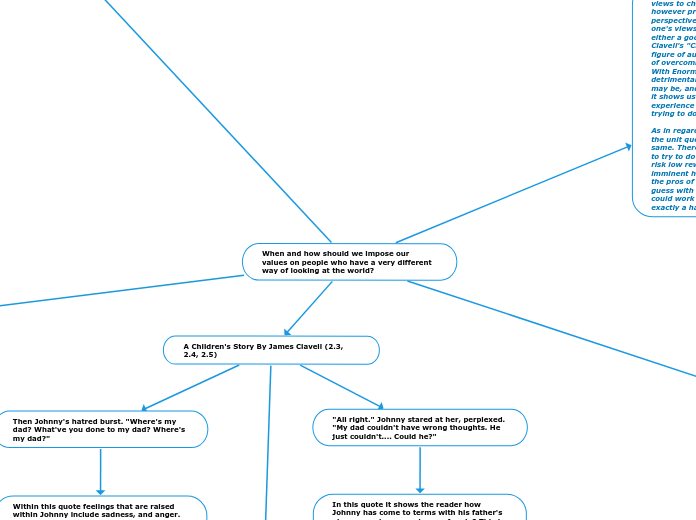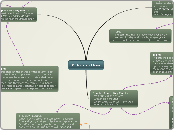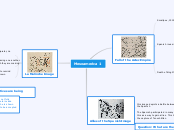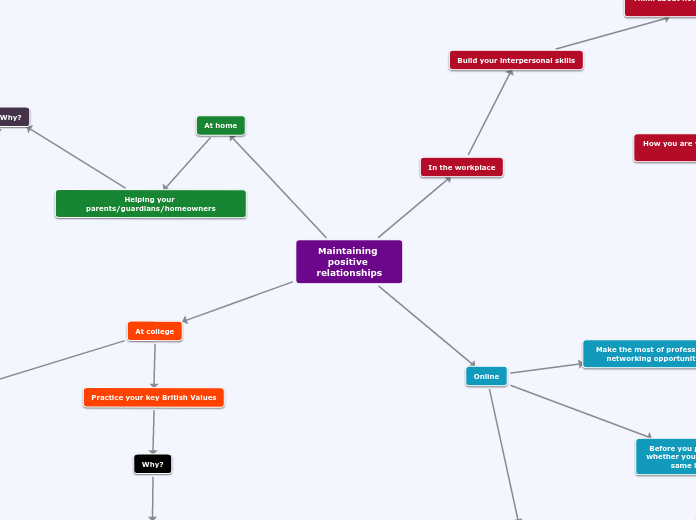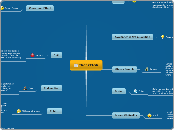When and how should we impose our values on people who have a very different way of looking at the world?
The Paper Menagerie By Ken Liu (2.11,2.12,2.13)
This story helped me come to an answer that differed from the other stories as this story shows how having ones views imposed on someone may not only affect them but their relationships and others
Without looking up, I asked for her help in tracing out the character for ai on the paper below Mom’s letter. I wrote the character again and again on the paper, intertwining my pen strokes with her words.
This quote raises further feelings of sadness and regret within Jack, and this could be seen as he asks "her help in tracing the character for ai" which means love, so in this line he sort of realizes that although his mother has provided him an insurmountable amount of love he hasn't provided any in return and this makes him deeply sad and regretful of that thus doing the next best thing at that present moment
The paper animals did not move. Perhaps whatever magic had animated them stopped when Mom died. Or perhaps I had only imagined that these paper constructions.
At this moment Jack had sort of had a realization and sadness. This was demonstrated through the phrase "Perhaps whatever magic had animated them stopped when Mom died" This is significant and brings up a moment of sadness since at the start of the story we were shown how Jack was entranced by them and now he realizes that the magic that had been driving them was his mother whos funeral he had not even attended sort of makes him sad since he probably feels as if hes lost something?
icantdothisone.
Although the texts may not have caused my views to change like drastically, it did however provide me with more perspectives and situations where having one's views imposed on another may be either a good thing or a bad thing? In Clavell's "Children Story" it shows how a figure of authority may help in the process of overcoming trauma, whilst in "A Man With Enormous Wings" it shows how detrimental having views imposed on your may be, and in the Psychology Today article it shows us the grays that we may experience within the real world when trying to do this.
As in regards to how I currently feel about the unit question it generally remains the same. There generally isn't a good reason to try to do something so risky (as in high risk low reward) unless a possess an imminent harm to those around them or if the pros of it far outweigh the cons, but I guess with a bit of good judgement you could work those situations out, so its not exactly a hard no anymore I guess.
Is It Always Wrong for Therapists to Impose Their Worldview? - Psychology Today
This text has helped me come up with a unique answer to the unit question, since it shows us potential difficulties that we may face in real life when trying to correct misinformation or impose good(?) beliefs on others. This is as in this text it shows how even if the best interests of the patients are kept in mind there may still be a significant amount of damage done to them, so it just isn't as black and white as some of the answers other texts give/
Therefore, challenging some obviously erroneous, personally and socially dangerous beliefs—like that vaccines cause autism, or are a scam by the pharmaceutical industry—is an important part of holistic and comprehensive therapy. As is challenging other dangerous and potentially damaging core beliefs.
This is related to the unit question as it shows a potential difficulty and issue of "imposing one's views" or correcting misinformation without causing significant harm to someone. (At least IF its a belief that one holds dearly to them, and in a way makes them, them)
A Children's Story By James Clavell (2.3, 2.4, 2.5)
This story has helped me come up with an answer to the unit question differing from the other stories as it shows me how when one's views are imposed on another it may not always bear negative consequences , and may even help them in some way? (such as overcoming trauma like with Johnny and his father)
I'd like to think of these two quotes as intertwined, so I'll answer steps 3.5/4 here. These quotes changed the way I've read about the text as it shows how people of positions of authority do not always possess malice as this story framed in the beginning and middle. (The children and old teacher's reaction to the new one, and Johnny's story), and also really it shows how people inflicting their views on others may not always be a bad thing. Although not explicitly stated I thought it was quite interesting how much power the teacher had held over the class. In the quotes above it shows how Johnny's trauma he held onto for a while was lessened or resolve in one day by someone he had never met, and the class that was once scared of the new teacher suddenly like felt extremely close to her after a bit of dialogue and candy
"All right." Johnny stared at her, perplexed. "My dad couldn't have wrong thoughts. He just couldn't.... Could he?"
In this quote it shows the reader how Johnny has come to terms with his father's absence and an acceptance of sorts? This is evident as the author describes Johnny as feeling "perplexed" not angry as he once did, and rather than making statements he making more questions. This change in demeanor and feelings also could've been seen later on in the story when Johnny no longer was described as harboring any negative feelings against the new teacher
This quote is part of a larger pattern of people coming to terms with their fears within this story. This is as the class had initially held a fear of the teacher, but after some dialogue, and not even a day later they'd practically embraced such change
Then Johnny's hatred burst. "Where's my dad? What've you done to my dad? Where's my dad?"
Within this quote feelings that are raised within Johnny include sadness, and anger. Specific phrases within this quote such as "Johnny's hatred bursts" directly show that, and we the reader could assume that any father possess a significant role in a child's life without there being a reason provided, so a conclusion can be made that Johnny felt feelings of anger and sadness towards the only person who had posses authority in that room that being his teacher. (The authority part is quite significant as it was someone who had possessed authority over Johnny and his father who took him away
This quote is part of a larger pattern of a lack of control leading to fear and hatred within this story. This could've been seen as the old teacher was fearful for her students as she was being replaced. The class was also scared of the new teacher, since she knew everyones name, and Johnny's overall fear and hatred of authority due to the incident involving his father
"A Very Old Man With Enormous Wings" by Marquez (2.8, 2.9)
This story has helped me come up with a unique answer to the unit question as it shows the damage that may be inflicted upon someone due to the initial perception that was held of them? I'm trying not to repeat the point I made in the analysis portion but its coming out weird. What I'm trying to say is how it may be extremely detrimental for someone even if you just impose your view on them without any malice?
Then she went to the window and caught the angel in his first attempts at flight. They were so clumsy that his fingernails opened a furrow in the vegetable patch and he was on the point of knocking the shed down with the ungainly flapping that slipped on the light and couldn’t get a grip on the air. But he did manage to gain altitude. Elisenda let out a sigh of relief, for herself and for him, when she watched him pass over the last houses, holding himself up in some way with the risky flapping of a senile vulture. She kept watching him even when she was through cutting the onions and she kept on watching until it was no longer possible for her to see him, because then he was no longer an annoyance in her life but an imaginary dot on the horizon of the sea.
Feelings that Elisenda felt within this quote was relief and a bit of happiness perhaps for the angel. A phrase that shows this would be "But he did manage to gain altitude. Elisenda let out a sigh of relief", and "he was no longer an annoyance in her life but an imaginary dot on the horizon of the sea". These lines convey such feelings as its both directly stated and she continuously paid attention and felt happiness when the creature was capable of flight, so this just goes to show like how there was a sense of care for the angel (even though she didn't speak up which she probably should have), and yeah there was happiness and relief for the creature when it was free
This quote is part of the larger pattern of change within this story. Change was a really prevalent as when the bat arrived the once popular creature with wings was abandoned and set free by everyone, and also at the start of the text there was a sudden change when the angel was held with high regards then suddenly being perceived as a chicken
This quote changed the way I read the text, since I guess I initially thought every single person did not at all care for the angel, and I had really thought this when prior to this occurring the angel was practically left to die
This quotes interesting, because it's confusing. Elisenda had previously left this angel out to starve and freeze not giving it one bit of attention, and now she's happy for it? Like either I read something wrong or she's gone mad in the head
Then they felt magnanimous and decided to put the angel on a raft with fresh water and provisions for three days and leave him to his fate on the high seas. But when they went out into the courtyard with the first light of dawn, they found the whole neighborhood in front of the chicken coop having fun with the angel, without the slightest reverence, tossing him things to eat through the openings in the wire as if he weren’t a supernatural creature but a circus animal.
This quote raises disgust within the general populace, since initially they had thought that this creature was an angel and set them free in the ocean, but to their dismay the angel had not only come back, but decided to play with the chickens. Words and phrases that raise these feelings are "he weren't a supernatural creature but a circus animal", and "in front of the chicken coup having fun with the angel". The first line shows how the villager now instead think of this creature as a circus animal rather than an angel, and being in front of the chicken coup is decently important since it sort of compares the two now? I mean they both have wings and are white so thats where the villagers had established what the angel basically was that being a circus chicken. (god are I funny), so thats when they lost all respect for him and feelings of disgust began to brew
This quote is part of a larger pattern of this creature now being mistreated and abused due to him no longer being perceived as an angel. This is as prior to this they had taken pity on him and set him free however later on the villagers no longer feed him, kept him cooped up with the chickens, and even tried burning him
This has affected the way I thought about the unit question, since it further reinforces my initial idea of not imposing one's view on another. This is as the villagers had really set themselves up for this one and there was virtually nothing the creature could've done. The creature had not said one word claiming he was an angel, but after the village and assumed so and realized he was not he was practically left out to die. Now had the village not perceived this thing as an angel but another like person or just creature in general the angel probably would've been treated far kinder. This is really moving, since I sort of see this happening in my life. Whenever my parents give me a compliment for doing something well I immediately shoot it down by doing it poorly again to make sure the haven't built any expectations of me doing things I'm not confidently like able to do every time, so yeah if they don't have expectations I can't disappoint 'em.
